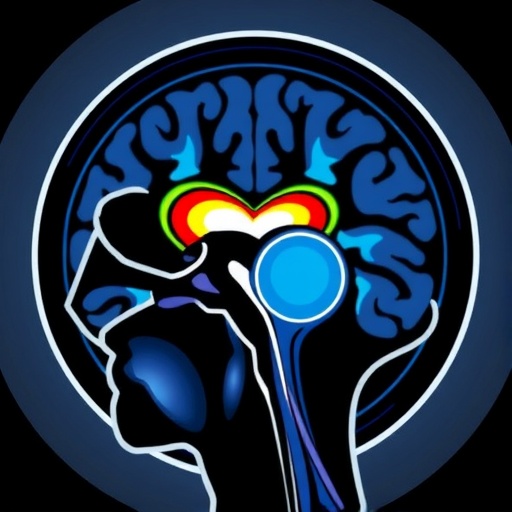PROTECT YOUR DNA WITH QUANTUM TECHNOLOGY
Orgo-Life the new way to the future Advertising by Adpathway
In the realm of oncology, the integration of artificial intelligence (AI) has emerged as a revolutionary force, offering unprecedented avenues to enhance clinical decision-making. A recent study spearheaded by Jiang, Zhao, and Wang expands on this front, illustrating how AI can be utilized to personalize standard treatment regimens for cancer patients. The implications of such research extend far beyond academic intrigue, presenting a pragmatic framework that could fundamentally alter the landscape of cancer treatment.
As the incidence of cancer continues to rise globally, healthcare systems are increasingly burdened. Traditional approaches often fall short in addressing the unique needs of each patient. The study advocates for a paradigm shift, proposing that AI-driven methodologies not only enhance the efficiency of recommending treatment regimens but also significantly improve patient outcomes by tailoring therapies to individual genetic and clinical profiles.
One of the primary advantages of integrating AI into oncology is its ability to process vast quantities of data at an extraordinary speed. The study underscores this potential, highlighting AI algorithms that can analyze patterns across numerous datasets, including clinical trials, patient records, and even genomic data. This ability to synthesize and interpret complex information allows for more informed decision-making, enabling oncologists to select the most effective interventions for their patients’ specific circumstances.
Moreover, the research elucidates the role of machine learning, a branch of AI, in refining predictive models for treatment outcomes. By training these models on extensive datasets, the algorithms become adept at identifying which therapies may offer the highest success rates for patients with similar profiles. Importantly, this predictive capacity can adjust as new data becomes available, ensuring that treatment recommendations remain current and evidence-based.
However, the transition towards AI-assisted decision-making is not without its challenges. The study discusses potential ethical concerns surrounding data privacy and patient consent. As AI systems require access to sensitive health information to function optimally, establishing robust data protection protocols is paramount. Healthcare providers must navigate these issues carefully to maintain patient trust while harnessing the power of AI in clinical settings.
Additionally, the successful implementation of AI tools depends significantly on the collaboration between technology developers and healthcare professionals. The study emphasizes the necessity of interdisciplinary partnerships to create AI systems that are practical and user-friendly. This collaboration can bridge the gap between advanced algorithmic capabilities and the day-to-day realities faced by oncologists, ensuring that the technology resonates with the needs of end-users.
The potential of AI in oncology extends beyond mere treatment recommendations. It also encompasses the capacity for real-time monitoring and adaptive learning. The research notes that AI systems can continuously learn from ongoing patient responses to treatments, allowing for quick adjustments to care regimens as required. This dynamic approach ensures that patients are not stuck with ineffective treatments for extended periods, thereby improving their quality of life.
Furthermore, the study highlights the significance of incorporating social determinants of health into AI-driven models. Cancer treatment is not solely a clinical endeavor; it is influenced by myriad factors such as socioeconomic status, geographical location, and access to healthcare resources. AI can potentially analyze these variables alongside clinical data, leading to more comprehensive and equitable treatment recommendations that reflect the realities of patient lives.
A particularly exciting aspect of this research is its potential application in military medicine, where personnel may encounter unique cancer risks due to their service environment. The study makes a compelling case for the adaptability of AI-driven decision support systems in military contexts, where rapid and informed treatment decisions can not only improve survival rates but also preserve the operational readiness of forces.
The research establishes a robust framework for how AI can indeed augment human judgment in oncology, but it also calls for caution. As AI evolves, there is a risk of over-reliance on technology, which could undermine the irreplaceable value of the patient-physician relationship. The nuances of patient care, empathy, and understanding must remain at the forefront, even as AI begins to play a more prominent role in clinical decision-making.
In conclusion, the findings presented by Jiang, Zhao, and Wang mark a critical step toward leveraging AI for personalized cancer treatment. The study illustrates the profound potential that machine learning holds not only for optimizing treatment regimens but also for reshaping how we understand and approach cancer care. As we advance into a new era of interdisciplinary collaboration and technological innovation, the blend of AI with medical expertise offers a glimmer of hope in the continuous battle against cancer.
Innovation in healthcare is often a double-edged sword that necessitates an ongoing dialogue about ethics, effectiveness, and access. The research boldly navigates these complex issues, emphasizing that while technology can provide powerful tools, the ultimate goal remains clear: to enhance patient care and outcomes in an increasingly complicated medical landscape. As the journey toward AI integration unfolds, ongoing scrutiny and collaboration will be vital to ensuring that the promise of this technology is realized responsibly and equitably for all patients.
The future of oncology, illuminated by the potential of AI, invites both cautious optimism and excitement. As researchers and clinicians eagerly embrace these advancements, the landscape of cancer treatment stands on the brink of transformation, with numerous possibilities unfolding for personalized medicine that could redefine patient experiences and survival rates in profound ways.
Subject of Research: Artificial intelligence in personalized cancer treatment recommendations.
Article Title: Leveraging artificial intelligence for clinical decision support in personalized standard regimen recommendation for cancer.
Article References:
Jiang, YL., Zhao, G., Wang, SH. et al. Leveraging artificial intelligence for clinical decision support in personalized standard regimen recommendation for cancer.
Military Med Res 12, 31 (2025). https://doi.org/10.1186/s40779-025-00617-z
Image Credits: AI Generated
DOI: 10.1186/s40779-025-00617-z
Keywords: Artificial Intelligence, Oncology, Personalized Medicine, Machine Learning, Clinical Decision Support, Treatment Regimens, Patient Care.
Tags: AI algorithms in healthcareAI in personalized cancer treatmentartificial intelligence in oncologycancer treatment recommendationsdata analysis in cancer treatmentefficiency in cancer careenhancing clinical decision-making with AIgenomic data in oncologyhealthcare systems and cancer managementpatient outcomes in cancer therapyrevolutionizing cancer treatment with AItailoring cancer therapies to patients


 2 hours ago
4
2 hours ago
4





















 English (US) ·
English (US) ·  French (CA) ·
French (CA) ·